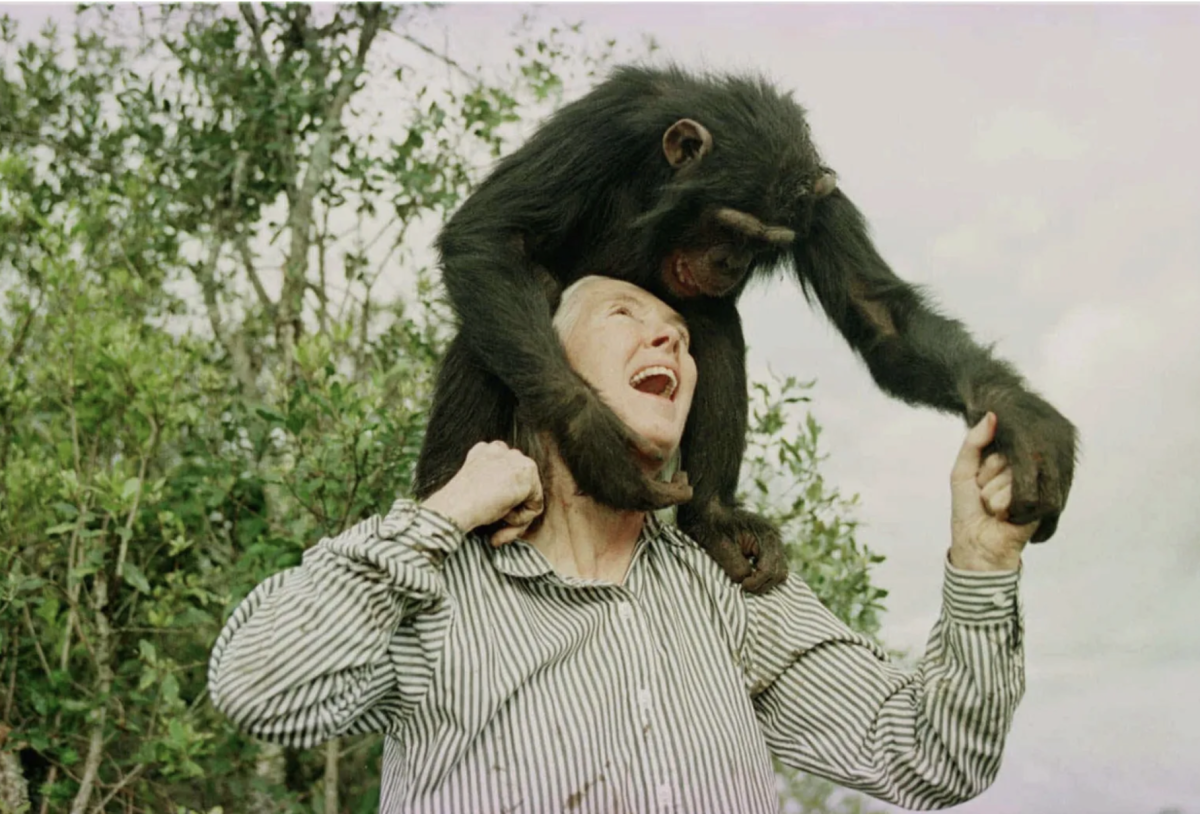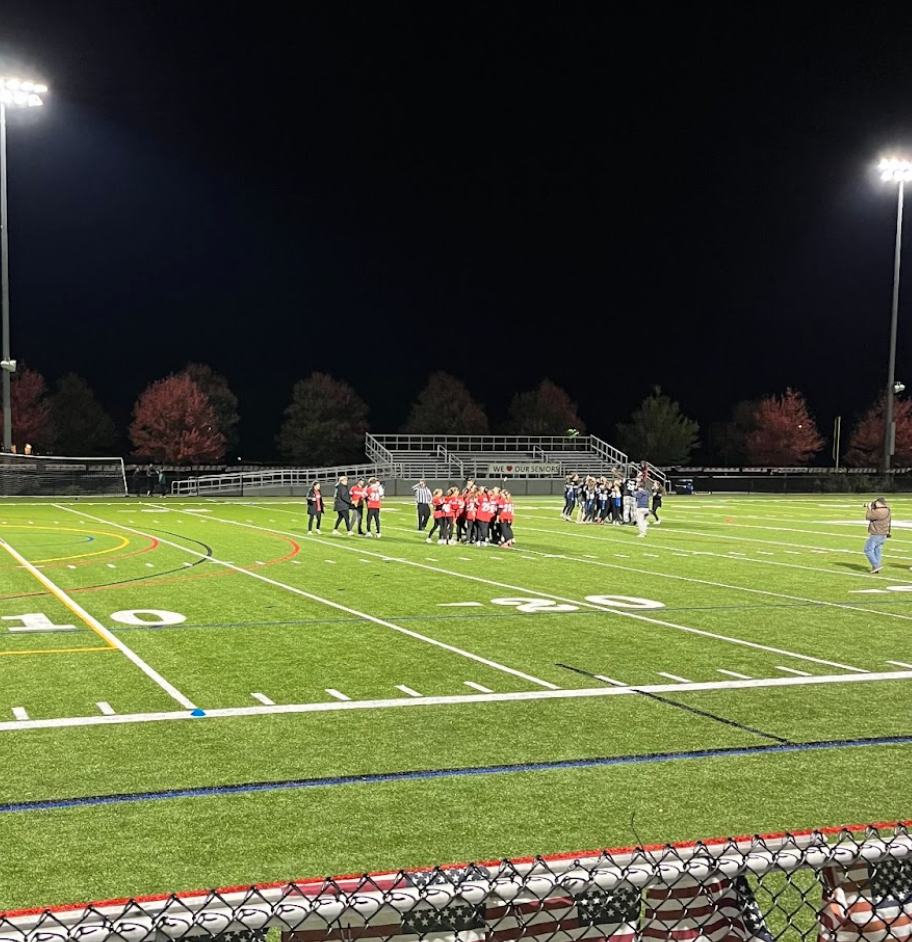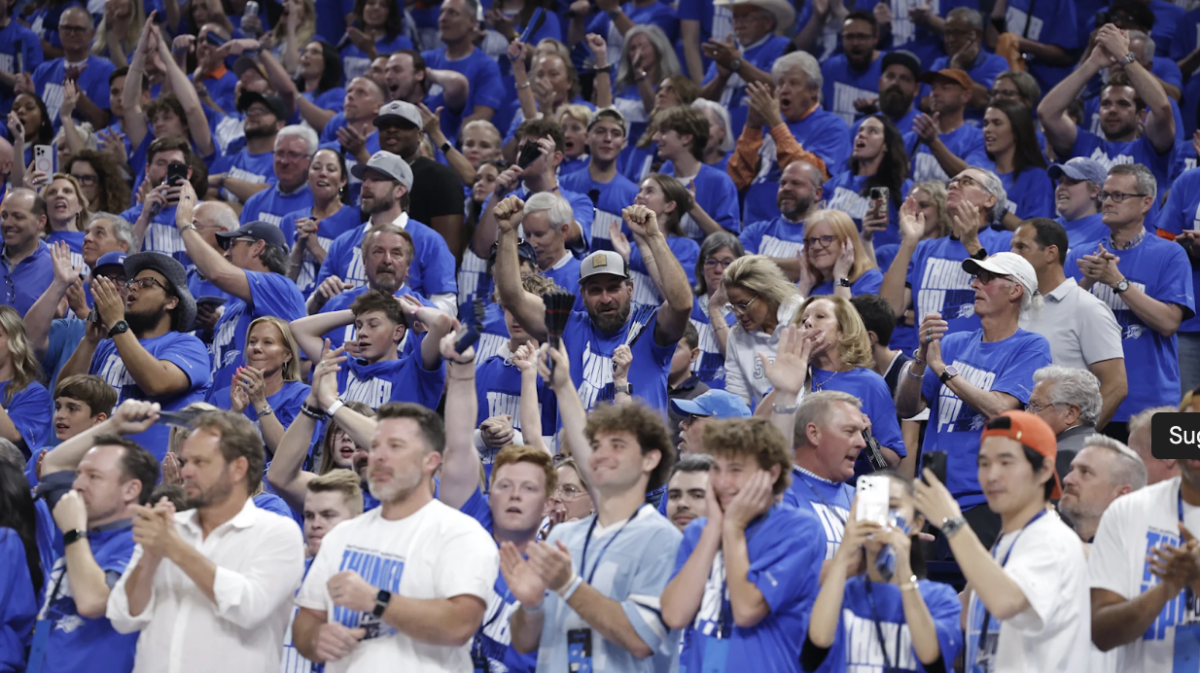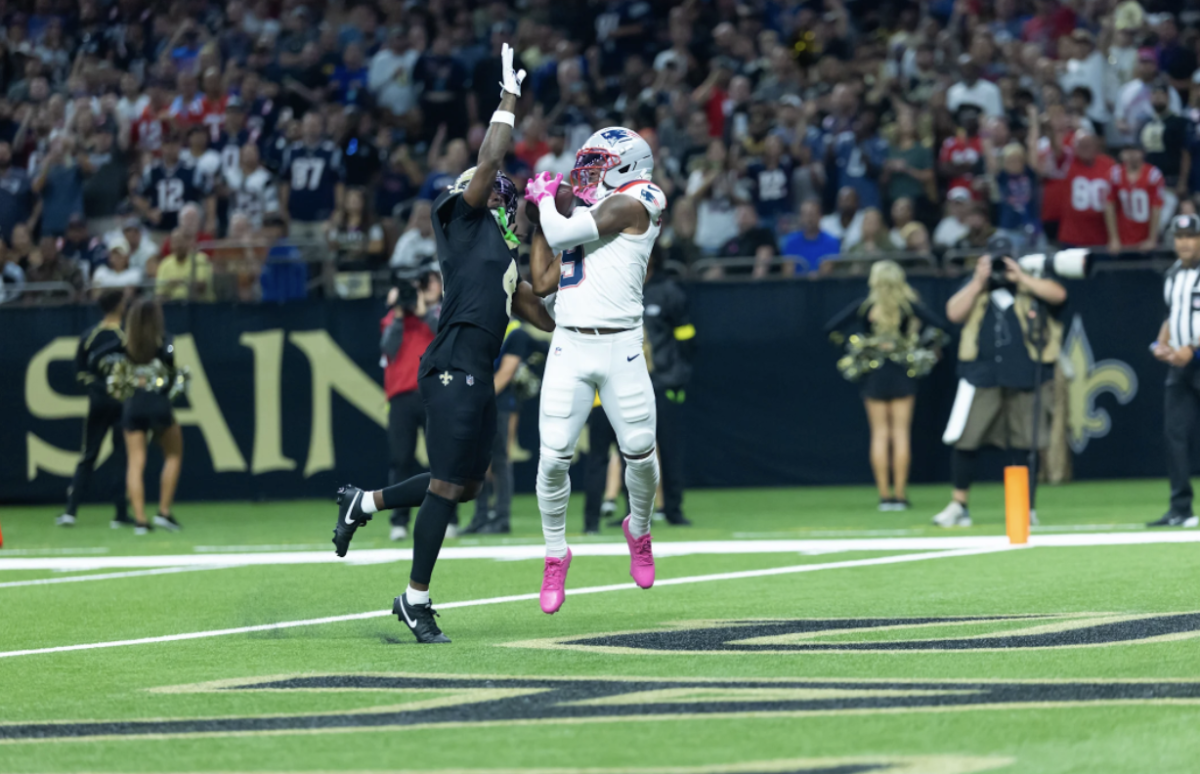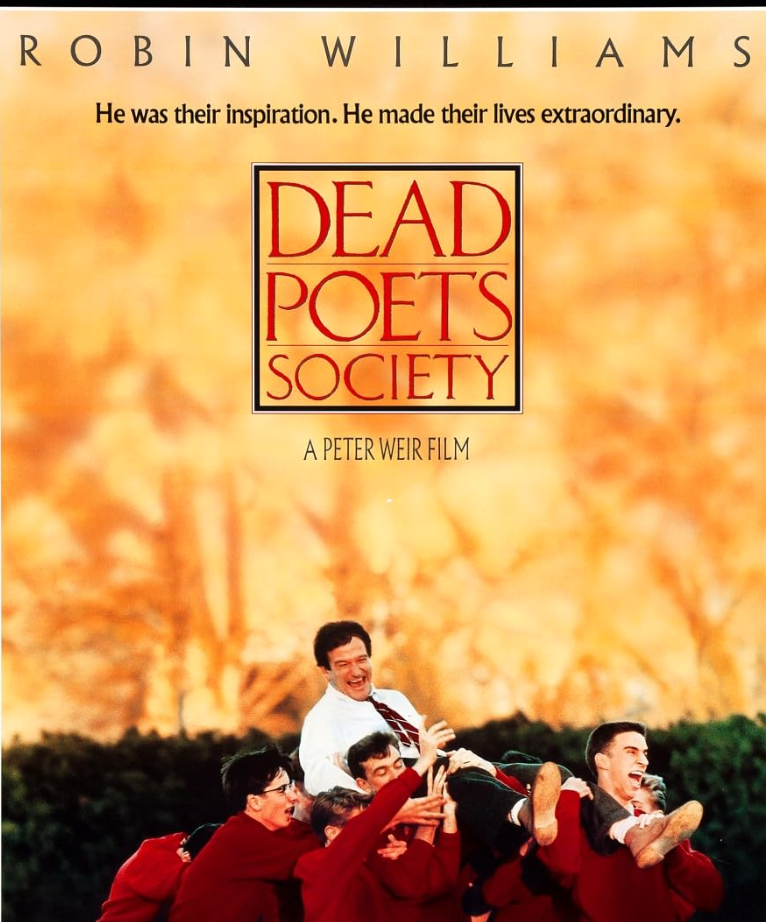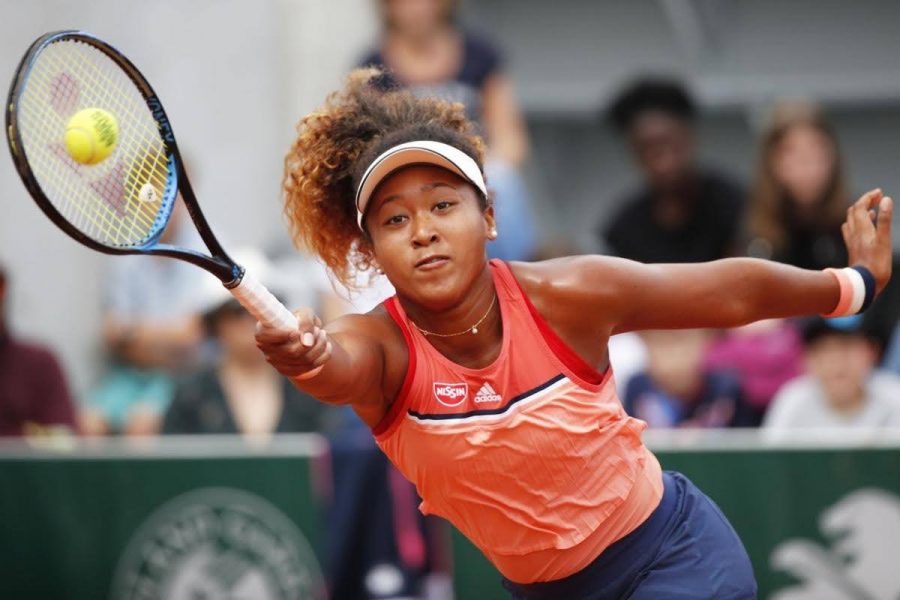Naomi Osaka Withdraws from French Open After Being Fined Thousands for Skipping Press Conference
Osaka, at only 23 years old, is ranked as the second best tennis player in the world.
June 7, 2021
“Love you guys, I’ll see you when I see you.”
This was tennis player Naomi Osaka’s parting message to the public, made in a Twitter post from May 31. The day before, on Sunday, May 30, she found out she was being fined $15,000 for refusing to engage in a post-match press conference. In response, Osaka withdrew from the French Open.
Osaka, 23, rose to fame after defeating Serena Williams in a controversial match during the 2018 U.S. Open final. Since then, she has repeatedly remarked that she struggles with mental health issues. “I don’t really like the attention, so yeah, it’s been a little tough,” she tearfully told reporters in a news conference on February 19, 2019. Her recent message from May 31 echoes this, explaining that she has “suffered long bouts of depression since the U.S. Open in 2018,” and she has “had a really hard time coping with that.”
The heartfelt message continues to explain that she has always been introverted, and she is “not a natural public speaker and get[s] huge waves of anxiety before [she speaks] to the world’s media.”
These struggles with mental health are the reason Osaka announced, before the French Open, that she would not be taking any press conferences. Normally, post-match press conferences are required at the Grand Slams for players who are requested (and Osaka, ranked No. 2 in the world, was certainly requested), yet Osaka is the first tennis player to boycott participation in these interviews. So, it should have come as no surprise when Osaka skipped the press conference after her first-round victory against Patricia Maria Tig. However, organizers of the French Open were surprised, which some news sources speculate was due to poor communication between Osaka and higher officials.
In response to Osaka’s withdrawal, the French Tennis Federation, Tennis Australia, the All England Lawn Tennis Club, and the U.S. Tennis Association released a joint statement: “Naomi Osaka today chose not to honor her contractual media obligations. The Roland-Garros referee has therefore issued her a $15,000 fine, in keeping with article III H. of the Code of Conduct.” The organizations went on to say that “The mental health of players competing in our tournaments and on the Tours is of the utmost importance,” despite subsequently threatening to suspend Osaka from future tournaments for her actions.
This is not the only backlash Osaka received. In a tweet that has since been deleted, the French Open posted images of numerous athletes engaging in media interviews, including Rafael Nadal, Kei Nishikori, Coco Gauff, and Aryna Sabalenka. The caption read, “they understood the assignment.”
Others supported Osaka in her decision to withdraw. President of the French Tennis Federation, Gilles Moretton, released this statement Monday, May 31: “First and foremost, we are sorry and sad for Naomi Osaka. The outcome of Naomi withdrawing from Roland-Garros is unfortunate. We wish her the best and the quickest possible recovery, and we look forward to having Naomi at our Tournament next year. Like all the Grand Slams, the WTA, the ATP, and the ITF, we remain very committed to all athletes’ well-being and to continually improving every aspect of players’ experience in our Tournament, including with the Media, like we have always strived to do.”
Moretton’s attempt at solidarity was somewhat ironic considering what NPR called the French Tennis Federation’s “hardball stance” against Osaka’s decisions and their firm resolution to find her–– not to mention the fact that that same day, Moretton refused to answer questions at a press conference.
However, others offered more genuine support for Osaka.
Stephen Curry, an NBA basketball player for the Golden State Warriors, tweeted, “[Osaka] shouldn’t ever have to make a decision like this–– but so damn impressive taking the high road when the powers that be don’t protect their own.”
“Mental health should be one’s first consideration,” wrote actor Jada Pinkett Smith, saying she was “proud” of Osaka for prioritizing her health.
Martina Navratilova, a former No. 1 tennis player, said, “I truly hope she will be okay… as athletes we are taught to take care of our body, and perhaps the mental and emotional aspect gets short shrift. This is about more than doing or not doing a press conference.”
Students at Hingham High agree that the controversy surrounding Osaka echoes widespread disregard for mental health in the sports world. Junior Lea Theopholis, a tennis player herself, thinks “it’s important for us, as athletes, to take care of our minds as well so that we can play our best out on the courts.”
Junior Catelyn Arnold, captain of the girl’s tennis team at Hingham High, has a similar opinion. “I think the sports world doesn’t do a good job taking care of their players’ mental health. I’ve seen [Osaka] give speeches before and she’s always been a very anxious public speaker, no matter where she is. The press at games and events can get very overbearing and “in your face,” so I completely understand why she would need a break. I think it’s disgusting that the tournament fined her thousands of dollars and prompted her removal from the game over something so small. It could have to do with the stigma surrounding mental health.” Arnold goes on to elaborate that Osaka’s identity as a young woman of color might have affected the tournament’s response. “If Robert Federer missed the press conference, I don’t think the company would have made such a big deal out of it,” says Arnold.
This controversy has called to attention the struggles of fame and the overwhelming pressure of the sports industry at large. Public interviews were a part of Osaka’s contract because much of the money the sports industry receives is from publicity: it’s not just about the game itself, but also about those who watch it. Press conferences attract viewers, making the game more profitable.
So, is it enough for Naomi Osaka to be a great tennis player, or should she be forced to undergo anxiety-inducing interviews? How can tennis, and other sports, be adjusted to accommodate players’ mental health more? Osaka’s courage to defy the rules is a sign that something in the sports industry needs to change. Perhaps that change has already begun.



